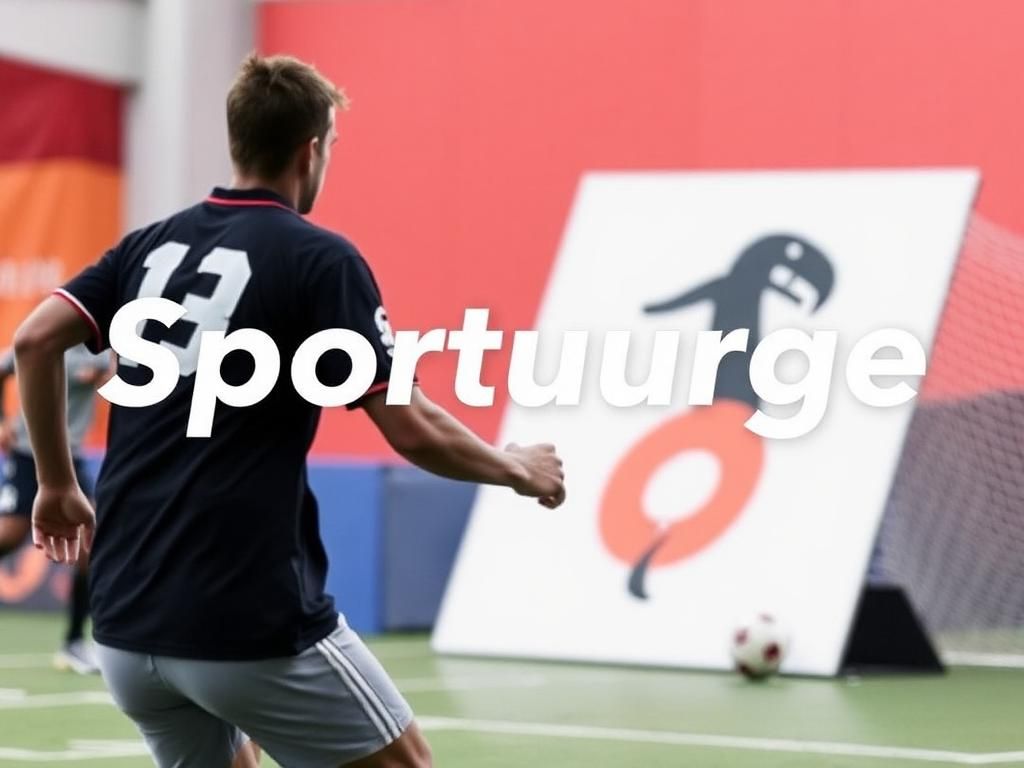Physical Address
304 North Cardinal St.
Dorchester Center, MA 02124
Physical Address
304 North Cardinal St.
Dorchester Center, MA 02124
The term sporturge refers to a powerful inner drive or desire to engage in sports or physical activities. It embodies the passion for movement, competition, and sporting prowess that encourages individuals to push their physical limits. While fitness motivation focuses primarily on the goal of staying fit or losing weight, and sports fandom revolves around the enjoyment of watching sports, sporturge encompasses a broader spectrum, urging individuals not just to participate but to immerse themselves deeply in the world of sports.
Understanding sporturge is crucial in today’s fast-paced world where physical activity is often overlooked due to busy lifestyles. The relevance of sporturge lies in its potential to significantly influence one’s mental and physical health, contributing to a more active lifestyle. There is a palpable increase in interest towards sports and physical activity, fostered by community initiatives, social media, and a growing understanding of fitness benefits. Cultivating sporturge can lead to improved health outcomes, increased life satisfaction, and a sense of belonging within a community of fellow sports enthusiasts.
Motivation plays a pivotal role in nurturing sporturge. Various motivational theories apply to sports participation, notably the distinction between intrinsic and extrinsic motivation. Intrinsic motivation refers to doing sports for the enjoyment and satisfaction it brings, while extrinsic motivation is driven by external rewards such as trophies, recognition, or competition rankings. Personal goals—whether they are to run a marathon or improve on a previous personal best—significantly nurture sporturge by providing direction and purpose.
Engaging in sports driven by strong sporturge can lead to numerous psychological benefits. It is associated with improved mental health and well-being, reducing symptoms of anxiety and depression. Moreover, both youth and adults experience enhanced focus and discipline through regular sports participation. The shared experiences in sports also foster community and social connections, making it easier for individuals to engage and thrive.
Several personal factors influence an individual’s sporturge. These include age, gender, and physical ability, all of which can impact one’s inclination towards sports. For example, younger individuals may have a higher inclination to explore different sports, while older adults may be more selective. Furthermore, previous sports experience and achievement levels can also affect sporturge; individuals with past successes in sports may be more motivated to pursue further athletic challenges.
The environment in which one lives significantly affects their sporturge. Accessibility to sports facilities and programs can either promote or hinder participation. Family support, peer influence, and societal norms play a crucial role in shaping perceptions about the importance of sports. Moreover, in communities where sports hold cultural significance, individuals are more likely to develop a strong sporturge.
In today’s digitally connected world, the role of media and technology in fostering sporturge cannot be underestimated. Social media platforms create vibrant communities of sports enthusiasts, sharing experiences, training tips, and competitive achievements. Furthermore, apps and online resources guide individuals in tracking their sports activities, connecting with communities, and finding inspiration from athletes worldwide.
To harness and cultivate sporturge, it’s vital to set personal goals. Using the SMART goals framework—Specific, Measurable, Achievable, Relevant, and Time-bound—helps individuals create clear pathways towards their objectives. Keeping track of progress and celebrating milestones fosters a sense of achievement, further fueling sporturge.
Joining sports clubs or teams is an excellent way to cultivate sporturge. The benefits of collaboration, camaraderie, and mutual support in teams contribute significantly to motivation. Digital platforms can also connect individuals with like-minded enthusiasts, creating a network of support and encouragement around their sporting journey.

To sustain and enhance sporturge, engaging with motivating sports content is crucial. Watching inspiring sports documentaries, listening to motivational podcasts, or reading books about athletes can reignite the passion for sports and physical activity. Utilizing digital platforms to follow favorite sports and athletes also keeps individuals engaged and informed.
Despite the benefits of sporturge, several common barriers can impede engagement in sports. Time constraints due to busy lifestyles often deter individuals from participating in sports. Physical injuries or limitations, as well as mental blocks stemming from past negative experiences in sports, can also create significant obstacles.
To overcome these barriers, various strategies can be employed. Time management techniques such as prioritizing activities can help integrate sports into daily routines. Those facing physical challenges can benefit from working with coaches and physical therapists to design appropriate training programs. Additionally, building resilience and maintaining a positive mindset through self-reflection and support networks can significantly improve one’s sporturge.
Several case studies exemplify how individuals have successfully tapped into their sporturge. For instance, a young man who transformed his life by dedicating himself to marathon training showcases the profound impact of sporturge. Additionally, successful sports initiatives in communities highlight how organized programs can cultivate greater participation in sports and physical activities.
Interviews with amateur and professional athletes reveal the driving forces behind their sporturge. They often emphasize inner motivation, personal goals, and the joy of competing. Coaches, too, provide valuable insights into how they motivate their teams, demonstrating the critical role mentorship plays in supporting sporturge.
The landscape of sports and physical activity is continuously evolving, with emerging trends such as e-sports and advanced fitness technology reshaping what it means to engage in sports. There is a growing expectation of increased participation across diverse demographics as access to resources and community support improves.
As we explore our own sporturge, it is essential to reflect on our motivations and goals. Encouragement is given to readers to discover what ignites their passion for sports. Numerous resources can guide individuals in getting started or sustaining motivation along their sports journey.

Consider exploring books like “The Inner Game of Tennis” by W. Timothy Gallwey or documentaries such as “The Dawn Wall.” These resources can provide valuable insights into the mindset necessary for athletic success.
Popular apps like Strava and MyFitnessPal offer functionalities to track sports activities, log workouts, and connect with fellow fitness enthusiasts.
Organizations such as the AAU Sports promote sports participation and development at varying levels, serving as excellent resources for aspiring athletes.
| Key Factors Influencing Sporturge | Personal Factors | Environmental Factors | Media and Technology |
|---|---|---|---|
| Age | Influences type of sports pursued | Access to facilities affects participation | Social media fosters connection and motivation |
| Gender | Affects interests in specific sports | Family support can influence engagement | Apps provide resources for tracking progress |
| Previous Experience | Success can drive future participation | Cultural significance drives community sports | Online communities build shared interests |
Sporturge is the intrinsic desire and drive to engage in sports and physical activities.
Setting personal goals, finding a sports community, and engaging with motivating sports content are effective methods.
Engagement in sports can lead to improved mental health, enhanced focus, and a stronger community connection.
Time constraints, physical limitations, and mental blocks can hinder one’s ability to participate in sports.
Employing time management techniques, working with coaches, and building resilience through support can help overcome these barriers.
Technology, especially social media and sports tracking apps, connects individuals and keeps them engaged in their sports journey.
Yes, local clubs, teams, and online forums can provide camaraderie and support for your sports activities.
Books, documentaries, and online platforms dedicated to sports can offer valuable insights and inspiration.
Absolutely! Children can develop sporturge through exposure to various sports and encouragement from family and peers.
No, sporturge applies to anyone who engages in sports or physical activities, regardless of their competitive level.